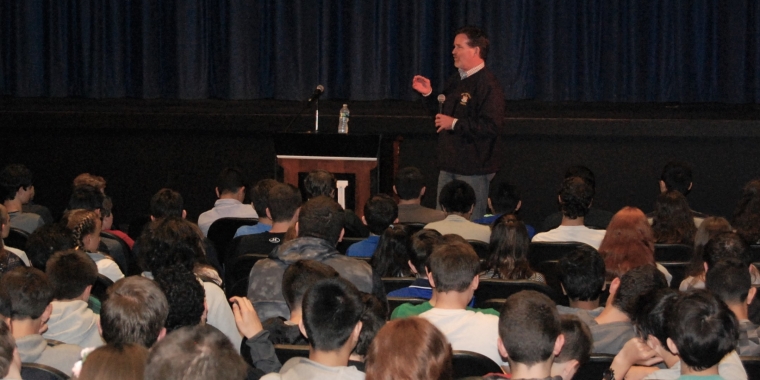
Senator Flanagan’s Legislation to Ban Synthetic Marijuana Passes Senate
John J. Flanagan
May 9, 2011
-
ISSUE:
- Controlled Substances
Legislation sponsored by Senator John Flanagan (2nd Senate District) that would ban the sale of synthetic marijuana products throughout New York State was passed today by the New York State Senate. This fake drug, which has been legally available under a variety of names like K2, Spike 99 and Spice at stores throughout New York State, including on Long Island and just blocks away from the State Capitol in Albany, is smoked as an alternative to marijuana and has similar effects.
While the United States Drug Enforcement Administration (DEA) has recently made possessing and selling these chemicals or the products that contain them illegal in the United States, this ban is not yet permanent. This temporary scheduling action will remain in effect for at least one year while the DEA and the United States Department of Health and Human Services (DHHS) further study whether these chemicals should be permanently controlled.
Senator Flanagan’s legislation, which has been sent to the Assembly for further action, would enact a permanent ban to make sure that the youth of New York State are protected.
“While I applaud the efforts of the federal government, it is important to enact a statewide law restricting the sale of synthetic marijuana to make sure that our communities are protected in the event that the federal ban is lifted. These substances are dangerous, they are gateways to future and more expanded drug use and they should be permanently banned. That is why I am hopeful that the Assembly will join the Senate in passing this legislation,” stated Senator Flanagan.
Synthetic marijuana is composed of a mix of herbs and spices that are laced with a powerful psychotropic drug or synthetic cannabinoids (pot-like chemicals) that mimic the effect of getting high on marijuana. Dangerous side-effects have been reported by those using synthetic marijuana including hallucinations, vomiting, agitation, increased heart rate, elevated blood pressure and other adverse conditions.
Along with its recent availability in head shops (stores that specialize in selling drug paraphernalia), smoke and tobacco stores and novelty shops, it was also available through the mail or on the Internet. The product, which is often marked as incense or potpourri sells for an average of $30 to $40 per three gram bag which is a price that is comparable to what an individual would pay on the street for illegal marijuana.
The chemicals that would be permanently banned under Senator Flanagan’s legislation have never been tested for safety in humans as they were created for experimental use in animals and cell cultures. John W. Huffman of Clemson University, who created the synthetic cannabinoids said that smoking these dangerous compounds is “… like playing Russian roulette. You don’t know what it’s going to do to you.” He added, “People who use it are idiots.”
Senator Flanagan’s synthetic marijuana legislation would ban the sale or distribution of products containing the synthetic cannabinoids: CP47, 497, HU-210, HU-211, JWH-108, JWH-073 for recreational use. Those convicted of knowingly selling or distributing synthetic cannabinoids would face a civil penalty of up to $500.
In addition to his efforts to ban synthetic marijuana, Senator Flanagan has long been a sponsor of separate legislation that would prohibit the sale and distribution of salvia divinorum which is a legal hallucinogen that can be more powerful than LSD.
According to the Drug Enforcement Agency (DEA), salvia divinorum is chewed or smoked to induce illusions and hallucinations, the diversity of which is described by users as similar to those induced by ketamine, mescaline, or psilocybin. It is currently under review by the medical and scientific community to determine if it should be classified as a controlled substance.
The legislation banning the sale of salvia divinorum passed the Senate in March and is currently awaiting action in the Assembly.
Share this Article or Press Release
Newsroom
Go to NewsroomWilliam J. Larkin, Jr.
May 15, 2017



